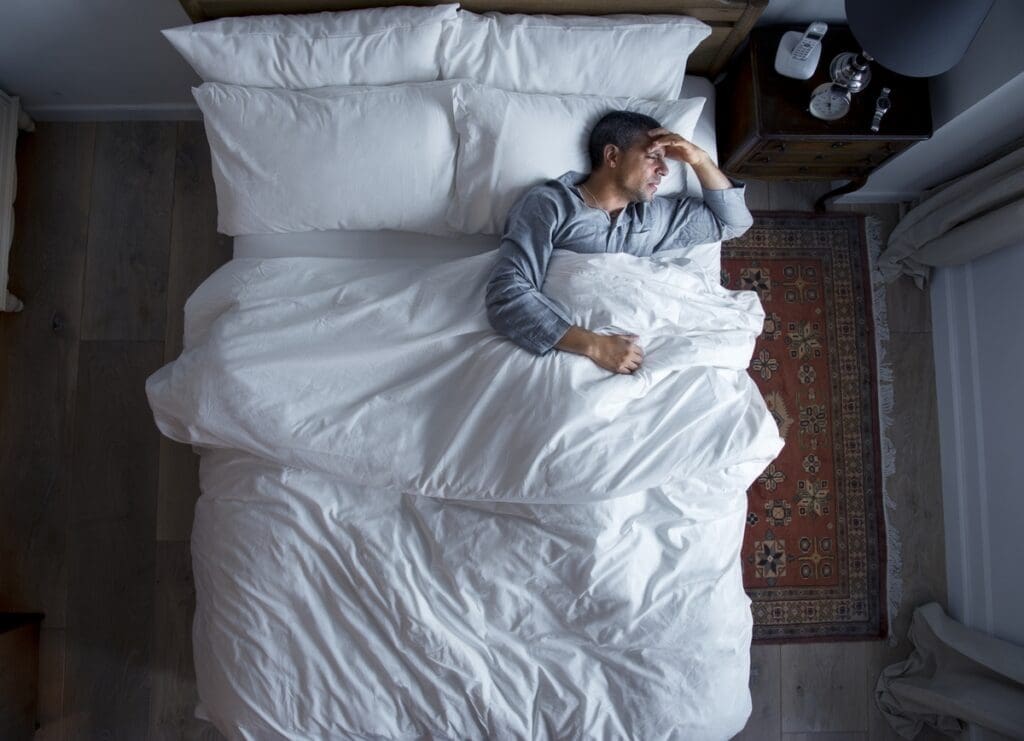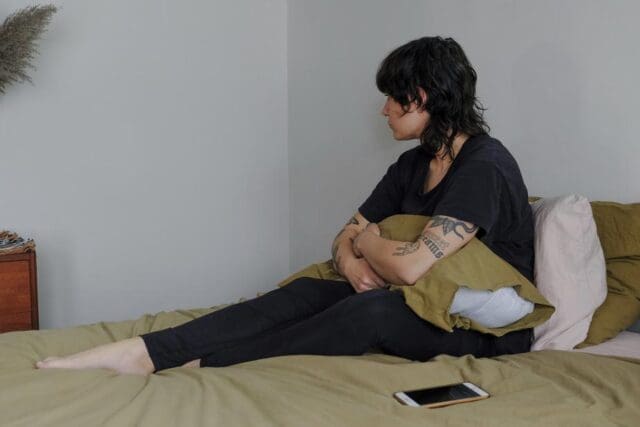Anxiety is one of the most common mental health disorders, and there are a lot of complicated factors that can contribute to anxiety levels. Genetics, stress, environment, and more play a role in the amount of anxiety a person will face during the day. However, there are some situations or feelings that can trigger or worsen the symptoms of anxiety.
An element that increases or begins the symptoms of anxiety is called a trigger, and each person will have different triggers. There are some triggers that are more common than others. While it may seem like anxiety starts without a trigger, and sometimes it does, knowing common triggers may also help you identify the ones that worsen your anxiety.
A therapist can also help you identify triggers and learn how to cope with them when they are unavoidable. In fact, you can even speak to a therapist online from the comfort of your home at BetterHelp.
A basic knowledge of triggers that may contribute to your feelings of anxiety can help a lot with the ability to adequately manage your symptoms. There are also things you can do to help you identify your own personal triggers.
Health Problems
Health anxiety is common, and a recent diagnosis or even a fear of a potential health issue could worsen symptoms associated with anxiety. In addition, the symptoms associated with an illness could also contribute to anxiety or cause symptoms that increase the frequency or severity of your regular anxiety symptoms.
Medicine
Some medicines, both prescription and OTC, can trigger or worsen anxiety in some people. This is also true of dietary supplements. Some ingredients found in medications could cause you to experience some symptoms more than you usually do.
The most common medications that can cause anxiety are weight management medications and cough medicines. Birth control medications may also contribute to anxiety.
Caffeine
Sure, you probably like to have a cup of coffee when you wake up in the morning, but it may not be the best choice if you suffer from anxiety. Since caffeine is a stimulant, it can increase heart rate, contribute to insomnia, and trigger racing thoughts, which are all common symptoms associated with anxiety.
Hunger
You may think occasionally skipping a meal is not a big deal, but it can be a trigger for anxiety. If you are stressed at work trying to catch up, you may think that completing it by not taking a lunch hour will help you reduce your stress and anxiety, but skipping a meal can cause jittery hands, stomach growls, low blood sugar, and other symptoms that can cause or contribute to anxiety.
Financial Issues
Worries about your financial situation can also trigger anxiety. Finances can be a stressful topic, and it is important to learn how to manage your finances in order to prevent it from triggering unpleasant or distressing symptoms of anxiety.
Social Interaction
Social situations can be a major cause of anxiety. Interacting with people can cause worry about the way you look and behave. However, social interaction is also healthy and an important aspect of human behavior. If you tend to isolate yourself to avoid social situations, it may be best to consult with a mental health professional to learn how to manage the symptoms and cope with social situations.
Relationship Troubles
While a friend, family member, or significant other is often a good person to talk to and can help with easing your anxiety, conflict with someone you care about can also trigger anxiety. It can be stressful to resolve a conflict and come up with a reasonable solution. If you are having severe problems with a spouse, then you may want to consider couples counseling as well.
Life Changes
Things like the loss of a loved one, a big move, or a job change can cause or worsen anxiety. However, change is important for growth and unavoidable. This sometimes springs from a fear of the unknown. Anxiety can sometimes cause us to worry about what may or may not happen in the future.
Lack of Sleep
Anxiety can cause insomnia, but the loss of sleep can also trigger symptoms of anxiety. Getting sufficient sleep is crucial to leading a healthy life and reducing the symptoms of anxiety. Try to go to bed and wake up at the same time every day and avoid light and caffeine close to bedtime.

Identifying Anxiety Triggers
Anxiety triggers vary greatly from one person to the next, and it is a good idea to identify your personal triggers. There are some things you can do to identify your own triggers.
First, keeping a journal can help you see patterns in the events or thoughts leading up to worsened anxiety symptoms. Try to track everything that you do during the day that may cause anxiety. You can also keep track of things that helped and things that did not help.
You may also find that listing the major stressors in your life to be helpful. This can help you reflect on potential causes of anxiety that you may be able to address. This can include past experiences as well.
Friends and family members can sometimes help you identify potential triggers. They have an objective view of the things that you do each day that could worsen symptoms of anxiety. Try talking to someone close to you, and you may be surprised at the insight they can offer you.
Conclusion
Anxiety is common and causes many different symptoms that can harm the quality of your life. Identifying triggers can help you prepare for them when they inevitably arise. This is one of the possible actions you can take to help ease the symptoms of your anxiety and learn to cope in a healthy way.


Bio: Marie Miguel has been a writing and research expert for nearly a decade, covering a variety of health-related topics. Currently, she is contributing to the expansion and growth of a free online mental health resource with BetterHelp.com. With an interest and dedication to addressing stigmas associated with mental health, she continues to specifically target subjects related to anxiety and depression.
Featured Photo by Wynne Neilly from Burst




